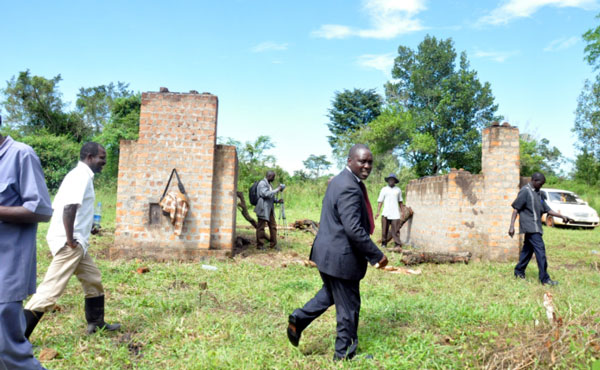
Charcoal to stay
For Simon Peter Amunau, the manager of the UNDP-funded Green Charcoal Project at the Ministry of Energy and Mineral Development, charcoal is here to stay for the simple reason that electricity and LPG remains quite expensive for millions of Ugandans.
“What we need to do is to promote charcoal production in a sustainable manner,” he says, “The current charcoal production techniques are wasteful with only 10% of charcoal produced in the traditional kilns.”
Amunau says the ministry is promoting efficient charcoal producing technologies which are able to recover 30-45% of the charcoal.
He says if charcoal producers adopt these technologies, then Uganda will see a cut back on trees and forests which are being felled to produce more charcoal.
The energy ministry is also promoting tree planting in the districts of Nakaseke, Kiryandongo, Nakasongola, Mubende and Kiboga where already 4,000 hectares have been planted on private farms and NFA forest reserves.
Amunau said the ministry is also embarking on a campaign to work with all stakeholders along the charcoal value chain— forest owners, charcoal producers, transporters, vendors and the users—to promote tree planting; efficient production techniques, good charcoal packaging ways to reduce moisture content, as well as promoting energy-efficient stoves.
Kazoora agrees that charcoal will remain big business for decades but making LPG cheaper can reduce demand for it. He says most people in Uganda could opt for LPG (gas) but are put off by the high cost involved and the lack of facilities for sale of small potions as happens with charcoal.
“If the government forfeited revenue in the short run and started shifting people to LPG then it would be easy to enforce laws against tree cutting,” he says, “Things work better when there are alternatives.”
Environmentalists are already saying charcoal has put deforestation into over drive, exacerbating already deadly climate change effects which are killing people in their homes.
Uganda is losing 60 million metric tonnes of wood every year valued at Shs 1,179,385,920,000. The government on the other hand is also losing Shs 268,516,106,157 in uncollected permit and VAT revenue that could be used to sustain the sector.
Henry Neufeldt, an expert on charcoal and climate change at the World Agro-forestry Centre in Nairobi told The New York Times in June last year that in the next 30 years, many forests and landscapes will be degraded because of charcoal demand, and because of the lack of policies to counter that effect.
Meanwhile, energy experts say charcoal users might have to brace themselves for harder times as prices continue to rise, thanks to excessive demand in the urban areas.
 The Independent Uganda: You get the Truth we Pay the Price
The Independent Uganda: You get the Truth we Pay the Price



Dear Independent,
We need to completely think and promote alternative energy cooking solutions. Dont even put UMEME on the menu. Than one is already costly for the common person. This is an opportunity for those promoting solutions like energy saving cooking stoves and other solutions like bio gas and solar. Its possible the solutions are in place but there is lack of awareness and rigidity to new solutions.
Excellent idea, we need to go for alternative fuels because the situation is becoming alarming.
use wastes to get briquettes, bio gas for those with feed stock etc. Because either way, we have to EAT..
Excellent write-up. I absolutely appreciate this site.
Keep it up!